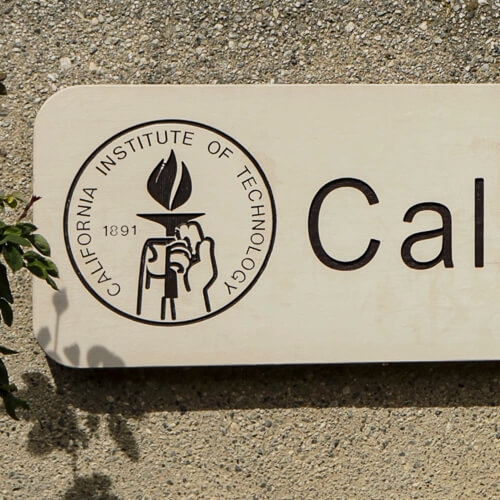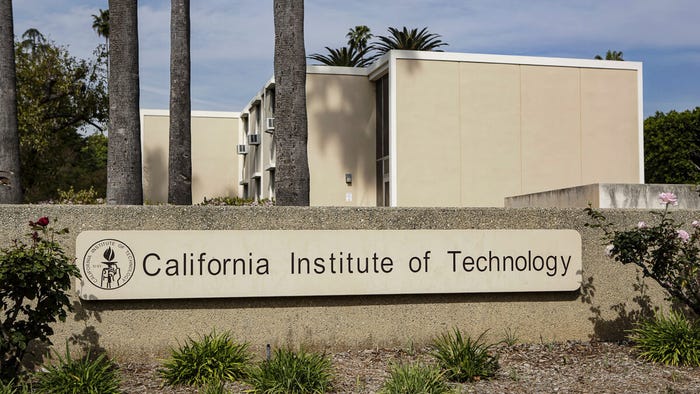After $1.1B win from Apple, Caltech sues Samsung
After getting $1.1 billion in royalty fines from Apple and Broadcom, Caltech is now suing Samsung, with Microsoft, Dell, and HP in its crosshairs, too.

Universities each have their own ways of boosting their finances.
For the California Institute of Technology (Caltech), successfully suing Apple and Broadcom for $1.1 billion for patent infringement – a trick they are about to attempt to repeat with Samsung – has brought in a great many books for the library.
According to the lawsuit, filed in the rich IP hunting grounds of the East Texas federal courts, the Wi-Fi chips in Galaxy smartphones, tablets and watches infringe five of the university's patents about data transmission technology.
Figure 1:  Big bang: Caltech is fighting back against the companies who have been using their tech without clearing their tab.
Big bang: Caltech is fighting back against the companies who have been using their tech without clearing their tab.
(Source: Andrew Cribb / Alamy Stock Photo)
For that matter, so do Samsung's smart televisions and fridges.
"By reason of Samsung's infringement, Caltech has suffered substantial damages," says the university.
And so, its complaint goes on: "Caltech is entitled to recover the damages sustained as a result of Samsung's wrongful acts in an amount subject to proof at trial."
Microsoft's in its firing line, too, for infringing Caltech patents in the Xbox, as well as Surface tablet and laptops.
Caltech has brought a patent infringement case about that in West Texas – though that case is on pause until the Federal Circuit rules on an appeal on the Apple and Broadcom case.
Other cases await against Dell and HP, too. Caltech has been keeping its lawyers busy.
Lawyers are always appealing
Meanwhile, Apple and Broadcom are appealing their royalties awards, which were from a jury trial in a Los Angeles federal district court, in the US Court of Appeals for the Federal Circuit.
The district court ordered Apple to pay $837.8 million in damages, and Broadcom $270.2 million.
A couple of things are at work here. With the tarnished shine of Big Tech, combined maybe with pent-up frustration during the COVID-19 pandemic, jurors have been happy to saddle tech companies with ever bigger fines.
I have long rallied against NPE (Non-Practicing-Entities/"Patent Trolls") who buy obscure/poorly worded patents and try to extort companies without ever contributing any new knowledge to the world.
— Fr. Robert R. Ballecer, SJ (@padresj) January 30, 2020
... CalTech is NOT one of those entities.
University boffins deprived of the benefits of their work cut a much better look for juries than tech companies.
There's also the development of the west and east federal districts of Texas as a forum of choice for patent holders. They've been getting used to awarding larger penalties – think billions rather than millions.
Over fair Shannon
The four patents in question all involve how it's possible to get around what's called the Shannon Limit. This is a speed limit for data transfer.
Given a certain amount of frequency space, transmission power and noise level, the Shannon Limit tells you the theoretical maximum error-free data transfer for that channel.
Generally in the past, Wi-Fi technology got round the Shannon Limit by using multiple channels. But since channels are limited and Wi-Fi numbers are vast in number, it's better if you don't need to do this.
So, Caltech figured out how to code, decode, convert code, and detect and correct errors in ways to let throughput exceed the Shannon Limit for a particular channel.
It filed these patents in 2001, 2006, 2008 and 2011. And the 802.11n, 802.11ac and 802.11ax Wi-Fi standards incorporate this work.
Want to know more? Sign up to get our dedicated newsletters direct to
your inbox
While patent trolls "buy obscure, poorly worded patents and try to extort companies without ever contributing any new knowledge to the world, Caltech is not one of those entities," tweets Robert Ballecer, a tech podcaster and Jesuit priest.
"It's remarkable when there are actual workarounds for theories and laws that seemed so logical, mathematically precise, and electrically unsurmountable when first learned," adds Stephen Syputa.
That said, the court decisions will be appealed for "years to come", adds Ballecer.
First of all, though, let's kill all the lawyers with work.
Related posts:
— Pádraig Belton, contributing editor special to Light Reading
About the Author(s)
You May Also Like












